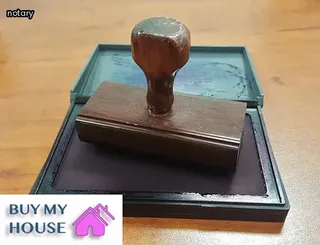Understanding a Quitclaim Deed without Covenant form in Maine is critical for those who are looking to easily complete the transfer of property rights from one party to another. This document, also called a deed of release, conveys any interest that a person may have in a particular piece of real estate, but does not guarantee it.
The process is relatively straightforward and requires minimal paperwork. To begin, first locate the Maine Quit Claim Deed form online or from the county clerk's office.
Then identify the grantor (transferor) and grantee (transferee). Next, provide details about the property being transferred including its physical address and legal description.
Finally, review the document carefully before having it signed by all parties involved. Once completed, this quit claim deed must be filed with the local county recorder or register of deeds to be officially recorded and become legally binding.
Understanding how to properly complete a quit claim deed without covenant form in Maine can help ensure that your real estate transaction is valid according to state law.

In Maine, there are two main types of deeds that can be used for transferring real estate: quit claim and warranty. A quit claim deed is used to transfer a person’s interest in an existing property without making any guarantees as to the title or condition of the property.
This type of deed is often used among family members or when a house has been purchased from an individual rather than a licensed real estate agent. A warranty deed, on the other hand, is used to guarantee that the title is clear and valid, and that there are no liens or encumbrances on the property.
It provides more protection for both parties involved in the transaction as it ensures that all legal obligations have been met. Completing a quit claim deed in Maine requires specific forms to be filled out and filed with the local courthouse in order to officially transfer ownership of the home.
The process may seem complicated at first, but by following the steps outlined here it can be completed easily and quickly.
Title Insurance and its Impact on Quit Claim Deed without Covenant Forms is an important factor to consider when completing a Quit Claim Deed. When a property in Maine is transferred through a quitclaim deed, title insurance is used to protect both parties from unexpected financial losses due to title defects that may have existed prior to the transfer of ownership.
Title insurance also covers any potential issues with the grantee's ability to obtain the legal rights associated with owning the property. Without covenant forms, this coverage cannot be provided and so it is essential for anyone transferring property in Maine via a quit claim deed to obtain some form of title insurance.
In addition, reputable lenders will usually require that title insurance be purchased before they are willing to finance any transaction involving a quit claim deed. Without it, buyers may find themselves liable for any existing liens or other encumbrances against the property that they had no knowledge of prior to buying it.
As such, it is always best practice for buyers and sellers alike who are planning on using a quit claim deed in Maine to obtain some form of title insurance as an added layer of protection against unforeseen problems or disputes arising out of the transaction.

Estate planning is an important part of owning a home, and one of the ways to do that is through a quitclaim deed. A quitclaim deed allows owners to transfer their interest in property without warranties or covenants.
In Maine, completing a quitclaim deed on a home is easy if done correctly. The first step is to obtain a blank form from the county recorder's office or online.
All the parties involved must sign and date the document, with at least two witnesses present. The signed document should be taken to the county clerk for recording, where it will become public record.
It is important to note that although a quitclaim deed does not provide any warranties, it does provide an owner with legal protection from future claims made against their property by previous owners or any other party who may have had an ownership stake in it. The use of quitclaim deeds can be an effective tool in estate planning and help ensure that all parties involved are adequately protected.
Constructing a Maine Quitclaim Deed without Covenant is not as daunting as it may initially seem. By following the instructions provided and having all of the necessary information before beginning, completing a Quitclaim Deed on a home in Maine can be achieved with relative ease.
To begin, all parties involved should have an accurate understanding of the property being transferred and who will receive ownership once the deed is completed. After that, the individual responsible for drafting the deed must obtain a blank form from their county registry of deeds and provide accurate information about all of the parties related to the transfer.
The form should also include any applicable clause or restrictions that might apply to the transaction. Once this is complete, all parties involved should sign and date the document in front of witnesses or a notary public; then it can be filed at the local registry office to finalize the process.
With these steps followed correctly, constructing a Maine Quitclaim Deed without Covenant should be relatively straightforward.

Maine is one of the few states that does not require a covenant in a quitclaim deed. This makes it easier for people to complete the process without the worry or additional paperwork.
To begin, the grantor, or person transferring ownership of the property, and grantee, or person receiving ownership of the property, must sign and date the quitclaim deed. The deed will also require that both parties provide their names and addresses as well as their marital status.
It is important to note that any minor children must be listed on the document if they are involved in any way with the transaction. Furthermore, two witnesses must sign and date the document.
One witness must be 18 years of age or older at the time of signing and both witnesses must have no direct involvement in the transaction itself. Lastly, in order for a Maine Quitclaim Deed without Covenant to be valid, it must be recorded at your county registry of deeds office.
All documents need to include an accurate legal description of all land parcels being transferred by this quitclaim deed as well as a tax parcel number associated with each land parcel. Once these requirements have been fulfilled and all signatures collected, you are ready to record your deed at your local county registry office.
Completing a quit claim deed on a home in Maine is not as difficult as it may seem. Knowing the process of writing and filing the deed will make it easier to do.
Start by gathering all necessary information, including the names of the grantor and grantee, address of the property, and details about any mortgages or liens. This can be found on public records or through contact with a real estate attorney.
Then, create a document that includes this information with language stating that one party (the grantor) is transferring full ownership of the property to another party (the grantee). Once complete, sign and date the document in front of two witnesses who are not related to either party.
After that, take the document to your local Register of Deeds office where they will review it for accuracy and record it into official documents. With this simple process, anyone can easily complete a quit claim deed on a home in Maine.

A quitclaim deed is a legal document that transfers ownership of a property from one individual to another. It is important to understand how it works and to have a sample of the correct form before beginning the process.
Examining a sample Maine Quitclaim Deed can provide valuable insight into the process. To begin, it is important to know that there are two parties involved in a Quitclaim Deed: grantor and grantee.
The grantor is the one transferring ownership of the property, while the grantee is the one receiving it. Understanding these roles helps to ensure that all parties involved are aware of their responsibilities during the transfer process.
The next step involves preparing and signing the deed itself, which must include all necessary information such as names, addresses, and descriptions of properties being transferred. Additionally, the deed must be notarized in order for it to be legally valid in Maine.
After all paperwork is complete, filing fees must be paid before submitting the Quitclaim Deed with your county clerk's office for processing. If you have any questions or need assistance completing your Quitclaim Deed on a home in Maine, contact an experienced real estate attorney for help navigating this complex legal document.
Completing a quit claim deed on a home in Maine can be done without paying for expensive legal fees. There are several free resources available to help you through the process.
The first step is to research the laws and regulations regarding quit claim deeds in Maine. The state government website has an extensive legal library that includes information about deeds, transfer taxes, and other related topics.
It is also important to gather all of the necessary documents before beginning the process. These include proof of ownership, a copy of the deed itself, and any other documentation required by your county or municipality.
Once you have all of these materials organized, it is time to begin completing your quit claim deed. It should include basic information such as the names of both parties involved and a description of the property being transferred.
Be sure to sign and date your documents before submitting them to your local government office for filing. With some research and careful planning, completing a quit claim deed on a home in Maine can be done quickly and easily without breaking the bank.

Know Forms.legal is an online platform that makes it easy to complete a Quit Claim Deed on a home in Maine.
The process starts by selecting the state of Maine and then continuing with the completion of all required forms. All forms are provided in an easy-to-understand format, so even the most novice user can follow along without any confusion.
After the forms are completed, they must be printed out and signed before filing with the local Register of Deeds. Once filed, Know Forms.
legal will email confirmation of receipt along with instructions for further processing. In addition to providing assistance in completing a quit claim deed, Know Forms.
legal also offers access to helpful resources such as sample deeds, information about recording fees, and additional guidance on filing requirements in Maine.
Preparing a house quit claim in Maine is not a difficult process but it is important to understand the steps and required documents that must be completed. By understanding the legalities of the process, one can quickly and easily complete the deed transfer.
The first step is to contact an attorney who specializes in real estate law to review all documents needed for filing. Next, obtain a Quit Claim Deed form from the county courthouse or online.
The grantor, or seller, must fill out the form including their name, address, and signature. The grantee, or buyer, will also need to provide their information as well as sign and date the form.
After completing the form, both parties will need to have it notarized by a public notary. Finally, all necessary paperwork should be filed with the county clerk's office along with applicable fees for recording and processing in order to complete the quit claim deed transfer process.

Creating a quitclaim deed without covenant in the state of Maine is a great way to transfer property ownership quickly and easily. This process is beneficial for both the current owner and the new owner as it does not require any extra legal paperwork or fees.
The main advantage of completing a quitclaim deed without covenant is that it allows for a simplified transfer of ownership, which can save time and money with no need to go through an attorney or other third party. Furthermore, it allows the current owner to quickly remove themselves from the title of the property while still ensuring that all parties involved in the transaction receive their due rights.
Additionally, since all of the documents are signed and filed with the local county registrar’s office, there is complete transparency throughout the entire process. Finally, because this type of deed does not involve any covenants or restrictions from either party, both owners will have full control over what they can do with the property once they take possession.
Completing a quit claim deed on a home in Maine requires careful consideration and attention to detail. It is critical to have an accurate understanding of the legal implications of the document, as well as an awareness of the potential tax consequences that may arise from signing it.
Furthermore, it is essential to ensure that all parties involved are in agreement with the terms outlined in the document and that they understand what they are signing. The deed should also include information about any liens or encumbrances against the property, such as mortgages or loans.
Additionally, if there are any restrictions or easements on the property, these should be noted and agreed upon by all parties before executing the deed. Finally, it is important to remember that when completing a quit claim deed on a home in Maine, all signatures must be notarized in order for the document to be valid.

In Maine, there are a few exceptions to the normal requirements for a Quit Claim Deed. If the deed is being made by a married couple, only one spouse needs to sign and acknowledge the deed, as long as both parties are named in the document.
Additionally, if the property being transferred is located within a municipality or city with an ordinance that allows it, then no notarization is required. Finally, quit claim deeds made between siblings or family members who have a shared interest in the property do not require signatures from any other parties connected to the transfer.
In all cases, it’s best to consult with an experienced attorney or real estate agent before completing any paperwork related to transferring ownership of property so that all legal requirements are met.
Transferring property in Maine using a quit claim deed is easy with the right steps. To start, the grantor of the property must make sure all parties involved are informed of their rights and responsibilities.
Next, you will need to get the proper documents from your county clerk's office. The forms needed include a blank quit claim deed, a notarized acknowledgement, and an affidavit of title.
Once these documents have been completed, they must be signed by both parties in front of witnesses and a Notary Public. Once all documents have been signed and notarized, it is recommended that you submit them to the county recorder's office for recording.
It is important to note that any existing liens or encumbrances on the property must be addressed prior to recording. After recording, the deed is legally transferred and ownership has changed hands.

The notarizing of documents is a necessary step for the validity of an agreement, especially when it comes to a quit claim deed on a home in Maine. Notarizing requires the presence of both parties involved in the agreement and an authorized notary.
The notary must witness both parties signing the document and verify that they are who they say they are by checking their proper identification. After the document is signed, the notary will then need to affix their seal as well as their signature.
Once that is complete, the document is considered legally valid. It’s important to note that each state has specific regulations regarding notarization and it’s recommended to consult with an attorney or other qualified professional before attempting to complete any such agreement.
When completing a Quit Claim Deed on a home in Maine, witnesses are an important part of the process. Witnesses must be present at the time of signing by both parties involved, and they must be 18 years or older.
The witness's role is to verify that all parties have signed the document with their own free will and are not under any duress or coercion. Furthermore, one of the witnesses is required to sign an affidavit of witnessing, which states that they observed the signing ceremony and saw both parties sign willingly and without duress.
In order for the Quit Claim Deed to be valid in Maine, it must contain two witness signatures as well as notarization from a Notary Public. Without these signatures and notarization, the Quit Claim Deed would not be legally binding.

Using an attorney to help with the preparation of a quit claim deed on a home in Maine can be extremely beneficial. An experienced attorney will have the knowledge and resources to ensure that the paperwork is completed correctly and efficiently, thus taking away much of the burden associated with preparing a quit claim deed.
Additionally, they are knowledgeable about state laws and regulations regarding this type of transaction, which can help reduce potential legal issues down the line. Furthermore, an attorney can provide valuable guidance when it comes to understanding what needs to be included in the document and any other paperwork that might be necessary for such a transaction.
By relying on an attorney for assistance during this process, one can feel confident knowing that their important documents are handled correctly and in accordance with all applicable laws.
Completing a quit claim deed in Maine is a straightforward process, but there are some frequently asked questions that can help make it easier. To begin, it's important to know what exactly a quit claim deed is.
A quit claim deed is a legal document that transfers ownership of real estate from one person to another without warranties or guarantees. In Maine, the process for completing a quit claim deed involves submitting the document to the county clerk's office along with any required fees and taxes.
The county clerk will then review the document and approve it if all requirements have been met. Additionally, both parties must sign the document in front of a notary public in order to make it legally binding.
It's also important to note that the recipient of the property must be able to produce proof of ownership before taking possession, such as an original deed or title certificate. Lastly, while filing fees vary by county and situation, they are typically between $30 and $50 per transaction.
Adding a name to a house deed in Maine is easy if you follow the right steps. A Quit Claim Deed is the most common form of deed used when adding or changing names on a property title.
The process can be completed quickly and easily by obtaining a Quit Claim Deed form from your local county court office, or online. Once you have obtained the form, you must accurately fill out the required information including both the current owner’s name and the new owner’s name.
The document must also be signed by both parties and notarized before it can be submitted to your local county clerk's office for recording. After it is recorded, you will receive copies to keep for your records as well as proof that ownership has been transferred to the new owner.
If you need assistance completing this process, contact your local county clerk's office for more information and help with filing your Quit Claim Deed in Maine.

When completing a quit claim deed on a home in Maine, there are certain requirements that must be met. First, all parties involved in the transfer must provide their full legal names and addresses as they appear on state records.
The deed must also contain a legal description of the property being transferred, including the county in which it is located and any other necessary information listed on the deed. In addition, all parties involved must sign the deed in front of two witnesses who must also sign the document.
Finally, the deed must be notarized by a Notary Public to ensure its validity. Once these requirements are met, your quit claim deed will be legally recognized in Maine and you can proceed with your home transfer.
A quitclaim covenant in Maine is a legal agreement that enables an individual to transfer ownership of property without any liabilities or obligations. The deed is commonly used for transferring real estate between family members and other individuals.
In Maine, the deed must be recorded with the county recorder’s office to be valid. The process for completing a quitclaim deed on a home in Maine is relatively straightforward and can easily be completed by following these steps: first, obtain a copy of the quitclaim form from your local county recorder’s office; second, fill out all of the required information on the form such as the name(s) of the current owner(s) and new owner(s), address of the property, legal description of the property, and date of transfer; third, have all parties sign and notarize; fourth, submit the form with associated fees to your local county recorder's office.
Once submitted, you will receive notification when the deed has been processed and recorded.
In order to record a deed in Maine, you must complete a quit claim deed. A quit claim deed is a legal document that transfers ownership of real estate from one person or entity to another without making any warranties as to the condition of the property.
It is important to understand that this type of deed does not transfer title insurance and does not guarantee that there are no other claims against the property. To easily complete a quit claim deed on a home in Maine, make sure you have all the necessary information before starting, including the grantor’s name and address, grantee’s name and address, legal description of the property, and any other relevant details.
Once you’ve gathered all the necessary information, draft the quit claim deed using an online form or template. Be sure to review it carefully for accuracy before filing with your local county clerk’s office in Maine.
Once filed, you will receive confirmation of recording within 2-3 business days.
A: In order to complete a quit claim deed on a house in Maine, you must prepare and execute the deed document, sign it in front of two witnesses, and have it notarized. The deed should include all necessary conveyances to ensure that title transfers properly to the living trust. Additionally, you should request a title search from an attorney or title company prior to executing the deed so that any potential breach of warranty of title can be avoided.
A: To complete a quit claim deed on a house in Maine, the life tenant must execute the deed, which should include language explicitly stating that the transfer is being made pursuant to the terms of a decree granting the life estate. The deed should also contain language clearly indicating that the life tenant is not warranting any title to the property and is not conveying any right or interest other than what was granted by the decree.

A: To create a quit claim deed on a house in Maine, it is important to ensure that the language of the deed clearly states the intended transfer, accurately identifies all parties involved, and provides proper witness and notarization signatures. Furthermore, when transferring title to real property in Maine, it is important to include language that preserves the legal rights of any existing Tenants in Common, Joint Tenants or Tenancy by the Entirety. This will help ensure that there is no breach of warranty of title.
A: To create a Tenancy in Common or Rights of Survivorship between you and a Co-Tenant through a quit claim deed, you will need to draft an appropriate deed that meets the requirements under Maine state law. This deed should include language that clearly states the intent to transfer title to the living trust while also granting the rights of Tenants in Common, Joint Tenants or Tenancy by the Entirety between both parties. Once completed, the deed must be signed and notarized before being filed with the appropriate county clerk's office.
A: To complete a quit claim deed on a house in Maine to transfer title to a living trust while obtaining premium insurance coverage from an insurer, you will need to first record the deed with the local Recorder of Deeds. You can then purchase title insurance through an insurance company that is authorized to do business in Maine. Title insurance will protect your legal rights as Tenants in Common, Joint Tenants or Tenancy by the Entirety and will provide additional protection against breach of warranty of title.

A: To ensure that a quit claim deed on a house in Maine is valid and legally binding, one must first determine the type of tenancy that applies to the property. If the property is held by Tenants in Common or Joint Tenants, it will be necessary to obtain written consent from each tenant prior to executing the quit claim deed. If the property is held by Tenancy by the Entirety, then only one tenant needs to sign off on the transfer of title. Additionally, it is important to make sure all legal documents are compliant with applicable state laws, including any relevant zoning ordinances from your local zip code. Finally, obtaining premium insurance coverage from an insurer can further protect against breach of warranty of title.
A: To create a quit claim deed on a house in Maine, it is advisable to seek the advice of an attorney-at-law or lawyer who is familiar with the laws and statutes of the state. The attorney can provide guidance throughout the process and can ensure that all necessary documents are correctly prepared and filed in accordance with applicable state statutes.
A: To complete a quit claim deed on a house in Maine, you must first research Maine laws, gather the necessary documents, fill out the quit claim deed form, sign and notarize the document, and finally file it with the appropriate county office.

A: In order to complete the quit claim deed, the owner of the property must pay any applicable Real Estate Transfer Taxes. Depending on the price of the home and other factors, there may be additional fees or payments associated with transferring title.
A: To complete a quit claim deed on a house in Maine and transfer title to a living trust, it is important to adhere to the METES AND BOUNDS of the property as specified by the Maine Revised Statutes. Additionally, if you are gifting the transfer, you must also provide evidence that all taxes and other financial obligations related to the property have been paid in full.
A: The process for completing a quit claim deed on a house in Maine to transfer title to a living trust while considering THE PROPERTY IS, WHERE THE PROPERTY IS involves first determining the legal rights of any tenants involved, such as Tenants in Common, Joint Tenants or Tenancy by the Entirety. Next, it is important to have an accurate legal description of the property. Once all necessary documents are completed and signed by all parties involved, the deed must be recorded with the county clerk or register of deeds. Finally, it may be beneficial to obtain premium insurance coverage from an insurer for added protection.